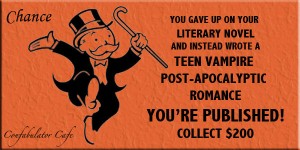
It used to be that the hero would have to climb a mountain to find the sage old man in a lotus position waiting for him, apparently immune to the cold and wind and not needing any sustenance like food and water. The hero would then ask a really – I mean REALLY – silly question that would inevitably be answered with a cryptic “Because it is there” line or some such. Or the hero scales the cliffside in order to visit the teenaged oracle who’s higher than a kite and the sexual plaything of a suspect religious order. The oracle then mutters some barely intelligible riddle that the hero takes back to the horny old goats of the order and they ‘interpret’ it to mean what they want it to mean. Usually this involved the hero taking a powder away from the village so that they can do what they want without any interference from the do-gooder hero.
Seeking advice is as old as people are. We go to those we trust in order to gain validation for what we want to do or are already doing. That we trust anyone enough to seek their advice is amazing in this day and age. At least to me it is. There’s so much free ‘advice’ laying around waiting to be picked up that it’s hard to understand why there aren’t more success stories. (more…)


